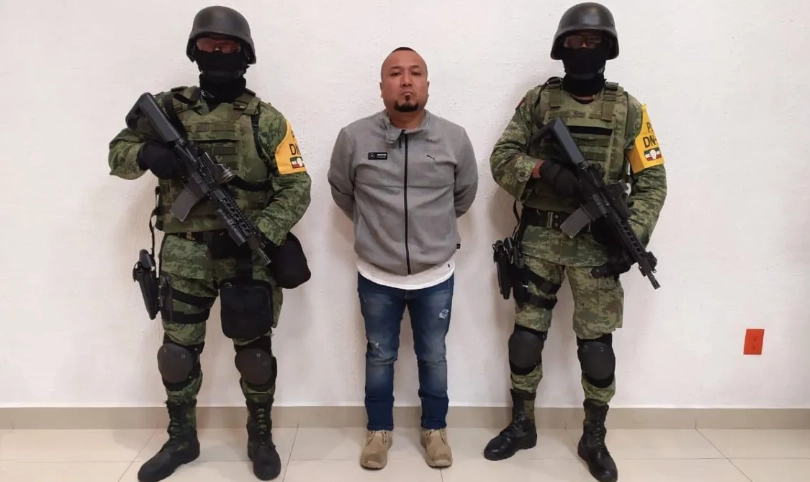Diplomatic relations between Mexico and the United States in the times of the so-called Fourth Transformation (4T) have been marked by the production and distribution of fentanyl in Mexico for consumers in North American cities, among other issues. According to statements by the authorities of that country, it has caused an average of 100,000 overdose deaths each year. An increasingly visible feature in the bilateral relation is that before or after a meeting between the leaders of the two countries, as a simulation of the attention to the problem, arrests of leaders of organized crime cartels or narco-politics, are made, rather than as a solution. This practice has been going on since Donald Trump’s term.
The first of these arrests was the case of César Duarte, a former governor accused of embezzlement and criminal association who fled to the United States and was arrested in Miami, days before President López Obrador had his first meeting with his counterpart Donald Trump. Such an episode was interpreted as a gesture of good neighborliness and political détente after the tensions caused by the construction of the border wall that would “reinforce” U.S. security.
Thus, in August 2020, weeks after President López Obrador had made a state visit to Washington to meet Donald Trump at the White House, José Antonio Yépez, leader of the Santa Rosa de Lima Cartel, was arrested and charged with various crimes, but it was part of the pressure exerted by the United States on the Mexican president after the violence that had reached U.S. citizens.
In March 2022, before a meeting between the Mexican president and the U.S. Secretary of Homeland Security, Alejandro Mayorkas, the army arrested Gerardo Treviño Chávez, alleged leader of the Northeast Cartel, who was accused of criminal violence, drug trafficking, and money laundering, which provoked confrontations on the Tamaulipas border that led to the suspension of mobility between the two countries.
With the Democratic administration of Joe Biden, the collaboration continued with the open participation of the DEA and the arrest of a historic drug trafficker, the legendary Rafael Caro Quintero, who was arrested on July 15, 2022, two days after the Mexican president returned from Washington with the commitment that the U.S. government would invest 1,500,000 dollars in infrastructure for the northern border.
On January 5, 2023, Ovidio Guzmán López, son of Joaquín El Chapo Guzmán, was arrested, four days after Joe Biden visited Mexico to participate in the X North American Leaders Summit.
Guzmán López’s arrest was strategic at the time because of his link to the production and distribution of fentanyl in the U.S. cities. The Americans were offering a US$5 million reward for anyone who could help locate him.
His arrest in the suburbs of Culiacán, Sinaloa, provoked what is known as the second culiacanazo, that is to say, they turned the capital of Sinaloa into a battleground between this faction of the Sinaloa Cartel and the security forces of the Mexican State, leaving a scene of war and a trail of deaths on both sides.
Néstor Isidro Pérez Salas, who was in charge of security for Joaquín El Chapo Guzmán’s sons, but who is also identified as a producer and exporter of fentanyl, played a central role in this operation.
This arrest occurred four days after the Asia-Pacific Economic Cooperation Forum (APEC), in which President López Obrador reportedly met with Joe Biden and President Xi Jinping of the People’s Republic of China, agreeing to combat the illegal trafficking of chemical precursors of synthetic drugs.
In short, the succession of this type of event during the 4T government shows that its sovereign foreign policy is guided by the needs of each of the nations and that this will not change, but rather consolidate in the present and the next administration. This means that organized crime, contrary to what is claimed that it “commands itself”, is, in the end, a bargaining chip when these types of meetings between the leaders of neighboring countries take place.
*Translated by Janaína Ruviaro da Silva from the original in Spanish











